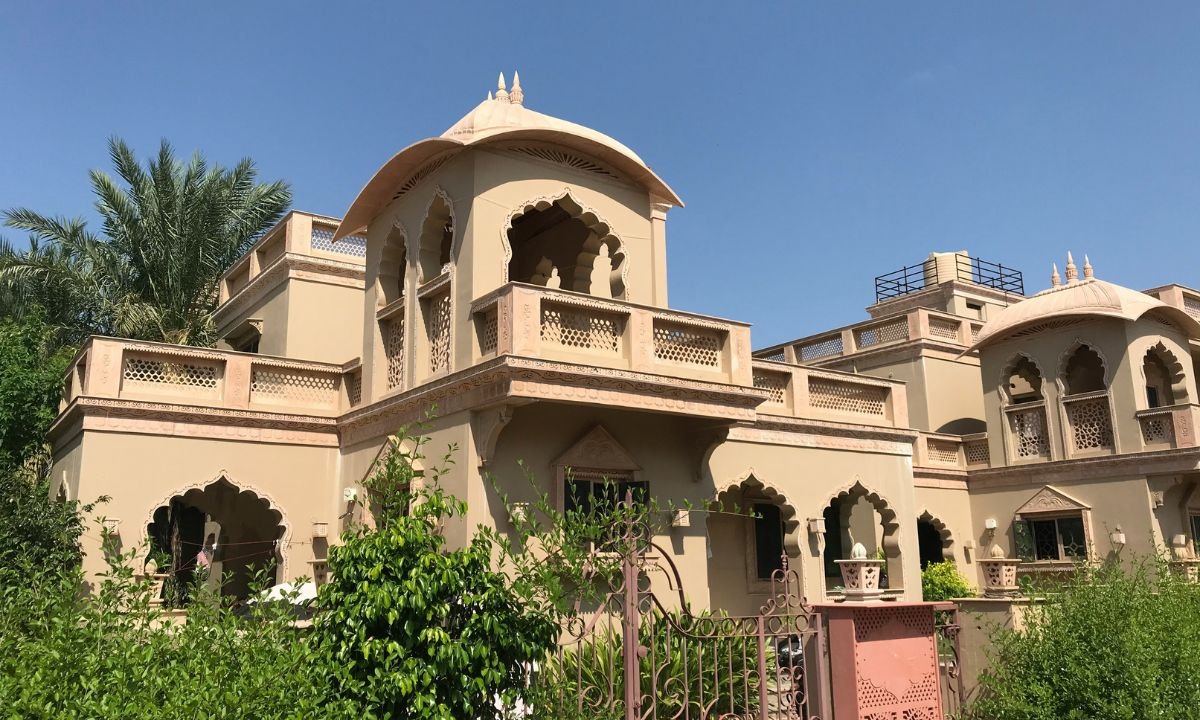The state, popularly known as the Land of Kings, Rajasthan is the state where each fort wall, each courtyard of the palace and each road leading to the desert resonates with the tales of heroism, magnificence, and ancient customs. In addition to being one of the best places to explore Indian culture, it is also the goldmine of the Indian living heritage to those who want to engage themselves in the Indian culture. Rajasthan is not only a place of sightseeing the monuments but also the Heritage Tourism is about living the life that has been maintained by centuries.
The Heritage Tourism in the Essence of Rajasthan.
When tourists consider heritage tourism, they mostly have in mind immobile buildings or monuments of the past. Rajasthan however changes this perception. In this case, heritage is not dead, it exists in the busy bazaars, traditional arts, folk shows, and hospitality of royal families, which still welcomes guests to their family historically. The combination of architecture, food, music and rituals makes Heritage Tourism in Rajasthan an all inclusive experience as opposed to a mere sightseeing tour.
Majestic Forts and Palaces
The heritage of the travelling in Rajasthan is based on the iconic forts and palaces, with most of them being UNESCO world heritage locations.
Amber Fort (Jaipur): Amber Fort, which is located on top of a hill and has a lot of mirror work as well as expansive court yards, embodies the art of the Rajput masons.
Mehrangarh Fort (Jodhpur): Soaring above the blue city, this enormous fort has excellent carvings, armories and breathtaking scenery.
City Palace (Udaipur): This architecture is a beautiful combination of Rajasthani and Mughal and is partially used by the royal family which provides an insight into the lives of the royalty.
Jaisalmer Fort: Jaisalmer Golden Fort, unlike most of the forts in India, is not an empty place anymore people are still living in this fort, which provides the travelers with the real experience of what the medieval life was like.
Every fort and palace has a story of the rulers who influenced the fate of Rajasthan and thus it is a living museum of history.
Heritage Hotels: Like a King or Queen.
Another peculiarity of Heritage Tourism in Rajasthan is the opportunity to communicate in heritage hotels. Havelis, forts and palaces are converted into luxury accommodation without any historical essence.
Umaid Bhawan Palace (Jodhpur): This palace is currently a royal residence but even a section of this palace has been converted into luxury hotel where unmatched luxuries are offered.
Samode Palace (near Jaipur): With its beautiful frescos and antique interior, it makes visitors travel back in time to the 16 th century.
Mandawa Havelis: In the Shekhawati region, the painted havelis provide guests with boutique accommodation with murals on the walls of the havelis.
Their presence in these properties enables the travelers live like royalty as they enjoy the harmony between conservation and modern hospitality.
Arts, Crafts, Folk Traditions.
Rajasthan can also boast of its colorful arts and crafts that also form part of its heritage identity. Every art form is laden with history, whether it is complex blue pottery of Jaipur or block printing of Bagru, or whether it is the mirror-work textile of Barmer.
Folk shows like Kalbeliya dance, puppet shows and Manganiyar music are also very interesting. These aspects of cultures preserve the traditions that have been transmitted through generations and contribute to the Heritage Tourism in Rajasthan.
Spiritual and Architectural Miracles.
The temples and stepwells at Rajasthan are also significant in presenting heritage.
Dilwara Temples (Mount Abu): It is well known due to the marble carving that is very elaborate and even surpasses any world monument.
Eklingji Temple (Udaipur): The temple is one of the important religious religious sites that is dedicated to the lord Shiva, which was part of the religious devotion of Rajput rulers.
Chand Baori (Abhaneri): A stepwell that has equal steps and deepwells which symbolize both the skills of engineering and customary purposes of the people visiting the place.
These places show how spirituality, architecture and the life of the people of Rajasthan were closely linked in the history of that region.
READ ALSO: Veneajelu: More Than a Boat Trip, It’s Finland’s Liquid Soul
Festivals: Heritage In Celebration.
Rajasthan festivals are events, and yet they are living traditions.
Pushkar Camel Fair: A colorful mix of business, culture, and religion.
Desert Festival (Jaisalmer): The colorful folk music, camel racing, and folk traditions.
Gangaur Festival: It is a festival celebrated all over the state and is the occasion of displaying the devotion of women and the traditional practices.
To the visitors, when one attends such festivals it is like getting into the heritage of the state of Rajasthan where the past and the present collide in a dramatic manner.
Food History: A Taste of History.
Heritage Tourism in Rajasthan cannot be fully explored without having to taste its royal food. Here, the cuisine is conditioned by the climate of a desert, its native food sources, and the tradition of royal cuisines.
Dal Baati Churma: A nutritious dish and a representation of hospitality in Rajasthan.
Laal Maas: A hot red meat curry and is a dish that is linked to the warrior tribes.
Ker Sangri: A desert dish prepared using beans and berries which have been dried.
Eating in old restaurants or the Palace Courters adds more cultural experience as they relate the food to the culture.
Conservation of the Rajasthan Heritage.
As much as Rajasthan is a successful destination in heritage tourism, it is experiencing challenges. The preservation of the centuries old buildings, the preservation of folk art in contemporary society and the relationship between tourism and the welfare of the local community are of primary consideration. Programs like UNESCO recognition, government programs and conversion of heritage hotels into private ones is also of critical importance in conserving these marvels to the generations to come.
This can also be done when travelers make responsible choices such as visiting local artisans, cultural norms, and staying in heritage properties which are environmentally friendly.
What is the reason to opt to Heritage Tourism in Rajasthan?
Rajasthan of all the Indian states is unique as it does not only provide glimpses of the past, but it even invites one to experience it. In staying in royal palaces and traversing crowded old bazaars, in hearing soul folk melodies under desert skies and in tasting centuries old recipes, the state provides the travelers with the opportunity of becoming part of its heritage.
Heritage Tourism in Rajasthan is an affair between the present and the past as it welcomes tourists to stroll through the living history as they build up their own stories.
Conclusion
And do not think Rajasthan is just a tourist destination, it is a heritage tour as the history still breathes through its every corner. The forts, palaces, festivals, crafts, and cuisine intertwine a tale of determination, glory and cultural pride. To anyone looking to get something original and more than sightseeing, the Heritage Tourism of Rajasthan is the best option to take a walk back in time and yet be very much in the present.
YOU MAY ALSO LIKE: A Traveler’s Guide to Gangtok: Explore Its Culture, Nature & Charm

